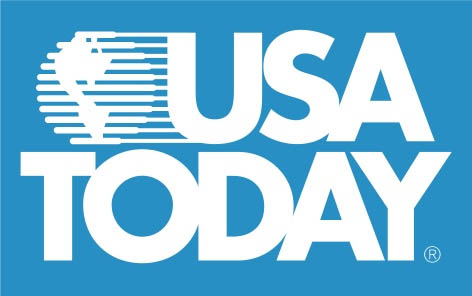Main|Bio|Books|USA Today columns|Opeds|Boston.com blog|Media|Other Publications| Speaking|Links

Canada bans assault weapons after mass shooting. The contrast with US inaction is painful.
Large capacity magazines are the real culprit on lethality. If Trump could be convinced to turn against his NRA pals, he should limit their size.James Alan Fox Opinion columnist
Published 12:35 p.mo ET May 5, 2020 Updated 6:16 ET May 5, 2020
It didn't take long for this chief executive to respond to a nation's anguish with decisive action. Immediately following the slaughter of 22 Nova Scotians, 13 with firearms and nine by fire, Prime Minister Justin Trudeau vowed to do something about assault weapons the instrument of death used in this massacre as well as others on Canada's short list of mass shootings. Within two weeks, Trudeau made good on his promise.
Capitalizing on his added powers amidst the COVID-19 pandemic, Trudeau summarily banned the sale, transfer, and use of more than 1,500 assault weapons identified by make and model. Existing owners of these firearms were given a two-year grace period after which Trudeau expects to launch a massive buyback.
What a contrast to President Donald Trump's vacillating response to repeated acts of carnage that occurred prior to the coronavirus pandemic, when the "March for Our Lives" movement - not physical movement - was the focus of debate and demonstrations.
Trump flip-flops on gun restrictions
In 2018, after meeting with survivors of the Parkland shooting, Trump vowed, "We're going to be very strong on background checks." However, days later, after conferring with his friends and financial supporters at the National Rifle Association, he walked back on that assurance.
The same Trump turnaround occurred in the wake of horrific mass shootings in El Paso and Dayton on successive days last August. The Tweeter-in-Chief typed, "Republicans and Democrats must come together and get strong background checks." A week later, Trump's resolve wilted under pressure from the gun lobby, insisting, "we have very strong background checks right now."
Trump made similar flip-flops on so-called "red flag laws" and on raising the age requirement for purchasing rifles. Trump's reversals are so frequent that The White House might well be dubbed "The Waffle House."
To be fair, Trump's response to gun tragedies is more constrained than Trudeau's and not just by pressure from pro-gun groups. All presidents, whether Trump or his predecessors in office during times of mass casualties, are limited in their powers. Executive actions can only be employed to modify how existing laws are enforced, but not to make new ones. Only Congress can initiate legislation for a president then to sign into law.
Last year the House did pass a universal background checks bill that would apply to gun shows, online purchases and other private transfers. Yet Senate Majority Leader Mitch McConnell, taking his cue from Trump, has refused to allow a vote on expanded background checks. It was disappointingly reminiscent of when opponents used the Senate filibuster rule to block similar legislation during the Obama administration.
Let the Senate vote: Mitch McConnell's blockade on gun background checks is a year old.
Apart from the differences between Trudeau and Trump on guns, questions remain concerning the effectiveness of any policy approach, including banning military-style assault weapons. Actually, very few homicides are committed with AR-15s or their variants, as compared to handguns. Even in mass shootings, less than 20% involve assault weapons.
The limited role of these ominous-looking weapons explains why the empirical evidence on the impact of assault weapons bans be it the 10-year Federal ban launched in 1994 or those enacted in a handful of states is inconclusive, at best. Nevertheless, a prohibition is worthwhile as an empathetic gesture to those who have lost a loved one to bullets fired from these weapons.
Large magazines are the real problem
As many have argued, assault weapons are not unlike most semi-automatic firearms except for their scary appearance. The real culprit when it comes to lethality is the large capacity magazine accessories that allow these rifles and certain handguns to fire dozens of rounds without reloading. In fact, two of the eight U.S. mass shootings with more than 20 victims killed were perpetrated with handguns not rifles, but handguns equipped with a large capacity magazine.
If somehow Trump could be convinced to turn against his NRA pals for steps more meaningful than a bump stock prohibition, it would be limiting the size of magazines, an approach that nearly two-thirds of Americans support. Our research on existing state gun laws, led by Michael Siegel of the Boston University School of Public Health, shows that limiting magazine capacity significantly reduces the severity of public mass shootings when they occur.
3 senators: We're ready to resume bipartisan gun background check talks with Trump anytime
At this juncture, mass shootings are not foremost on the minds of Americans and especially Trump. With stay-at-home orders, and closures of schools, churches, restaurants, and concert venues, there have been no public mass shootings with large death tolls for months.
When mass shootings do resurface as a hot topic, we can only hope that Trump will listen to the majority of Americans who support gun control and not just those "very good people" at recent protests standing with nooses, swastikas, and weapons of mass murder destruction.
James Alan Fox is the Lipman Family Professor of Criminology, Law and Public Policy at Northeastern University, a member of USA TODAY's Board of Contributors and co-author of "Extreme Killing: Understanding Serial and Mass Murder." Follow him on Twitter: @jamesalanfox.